Florida woman one of first to try promising Alzheimer's treatment
How does LEQEMBI battle Alzheimer's?
The FDA approved LEQEMBI for battling Alzheimer's disease. How Goizueta Alzheimer's Disease Research Center at Emory University played a role in its development.
ATLANTA - Last summer, Carolyn Davis' journey to become one of the first patients in Georgia to receive an infusion of a recently FDA-approved Alzheimer's treatment began with diagnosis from a neurologist.
"The brain scan, or whatever they did at West Florida Hospital, they gave that to the doctor, and he told me to, ‘Get your affairs in order’," Davis remembers.
The active 74-year-old retired business owner says the neurologist told her she had Alzheimer's disease, and there was nothing that could be done to help her.
Leqembi drug trials at Emory University
Devastated, Davis called her friend, Linda Davidson, the executive director of the Alzheimer's Association's Georgia chapter.
"We've been friends for 30 years," Davis says. "And, she said, 'No, we're going to get a second opinion.'"
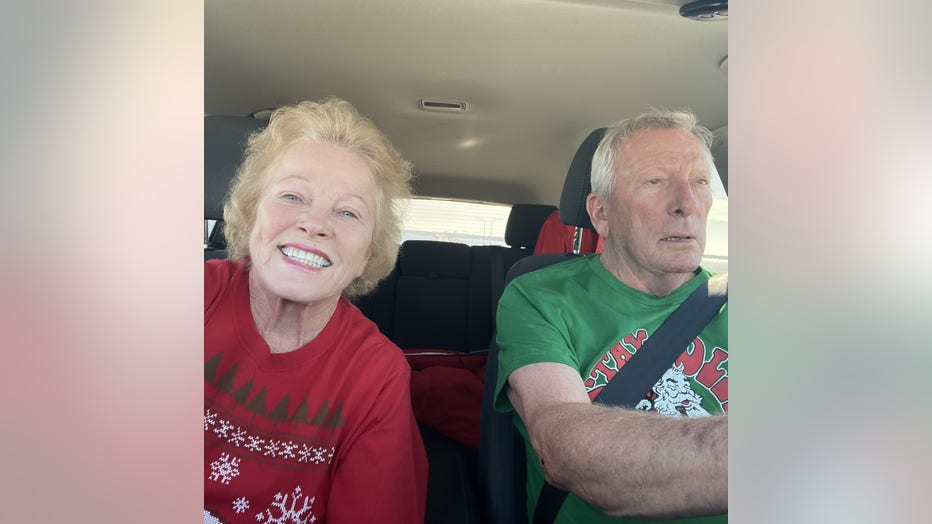
Carolyn Davis, 74, is one of the first Alzheimer's patients at Emory University Hospital to receive the recently FDA-approved drug Leqembi. (Carolyn Davis)
That is how Davis found neurologist Dr. Allan Levey, Director of the Goizueta Alzheimer's Disease Research Center at Emory University Hospital.
"She has some memory problems, and, you know, we confirmed that," Levey says. "So, I look at her as a great example of somebody who's in the very early stages of Alzheimer's disease. You realize, boy, she's a bright woman, full of life, and fully capable of so many things."
What is Leqembi?
Davis underwent testing to confirm she has a buildup of amyloid-beta protein plaque in her brain that Leqembi is designed to target.
She also had genetic testing, to make sure she did not carry an Alzheimer's gene, APOEe4, that could raise her risk of severe side effects like bleeding in the brain.
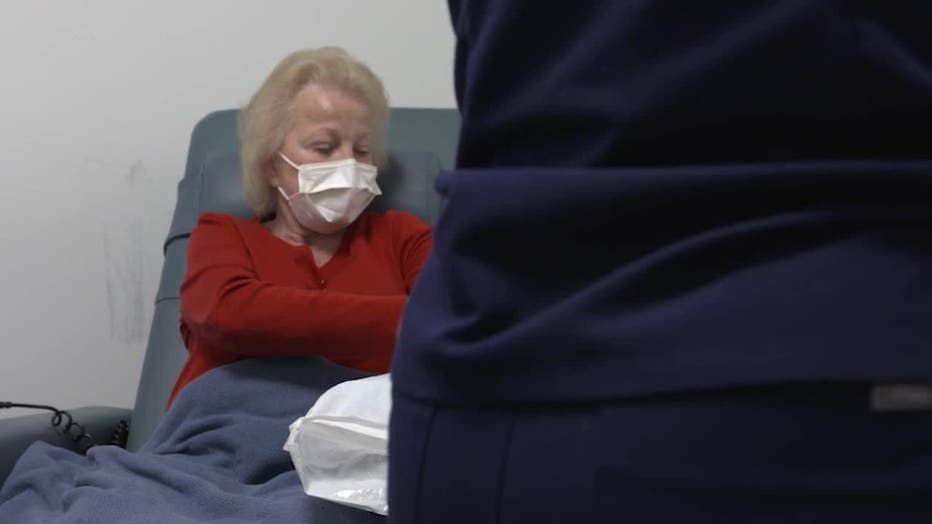
Carolyn Davis, 74, is one of the first Alzheimer's patients at Emory University Hospital to receive the recently FDA-approved drug Leqembi. (Emory University)
When Dr. Levey told Davis she was a candidate for Leqembi, she says, she broke down and cried with relief.
"Then, after that, I said, 'Okay, you know, time to get going," Davis says. "I mean, there is hope. There's something I can do and there's going to be a protocol, and I'm going to do it. And that's what I started."
Every 2 weeks, Davis drives 5 hours from Pensacola to Emory University Hospital in Atlanta for an hour-long infusion of the monoclonal antibody.

Carolyn Davis, 74, is one of the first Alzheimer's patients at Emory University Hospital to receive the recently FDA-approved drug Leqembi. (Carolyn Davis)
In a clinical study, the medication slowed cognitive decline in early-stage Alzheimer's patients by nearly 30%.
"There's never been a medicine, ever, that's been able to slow down the disease at all, so this has been a huge breakthrough," Dr. Levey says. "But it's far from perfect. Again, this drug is one, not for everybody. Two, it carries considerable risks. Three, it's expensive."
The treatment, now covered by Medicare, is about $26,500 a year, with most patients paying a 20% copay, or $5,300.
What are Leqembi’s side effects?
Leqembi can cause infusion-related reactions, and, more rarely, swelling and bleeding in the brain.
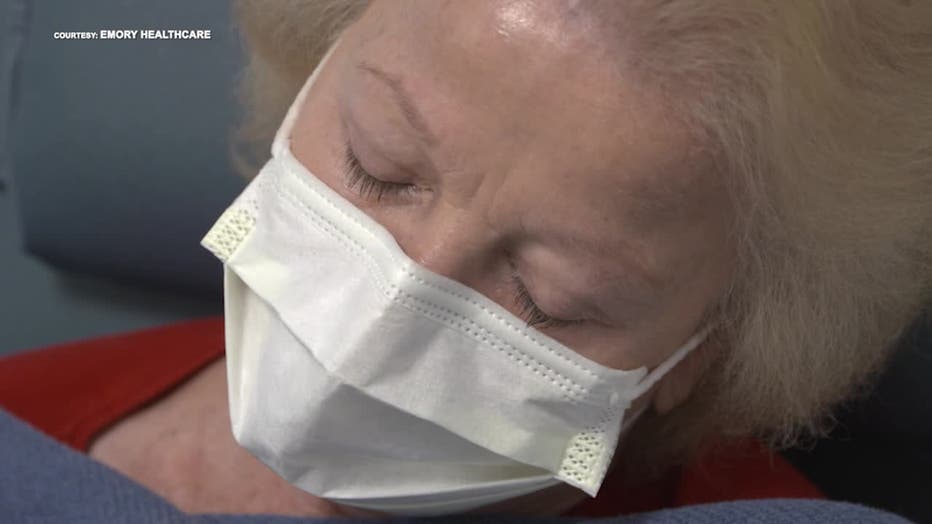
Carolyn Davis, 74, is one of the first Alzheimer's patients at Emory University Hospital to receive the recently FDA-approved drug Leqembi. (Carolyn Davis)
So, patients have to be closely monitored with brain scans.
Dr. Levey says, by slowing down memory loss in patients like Davis, the drug can buy them time.
"You may keep them at home independent longer," Dr. Levey explains. "They may be able to drive. They may be able to do the things they want. And that could mean one to three extra years before they really need more help."
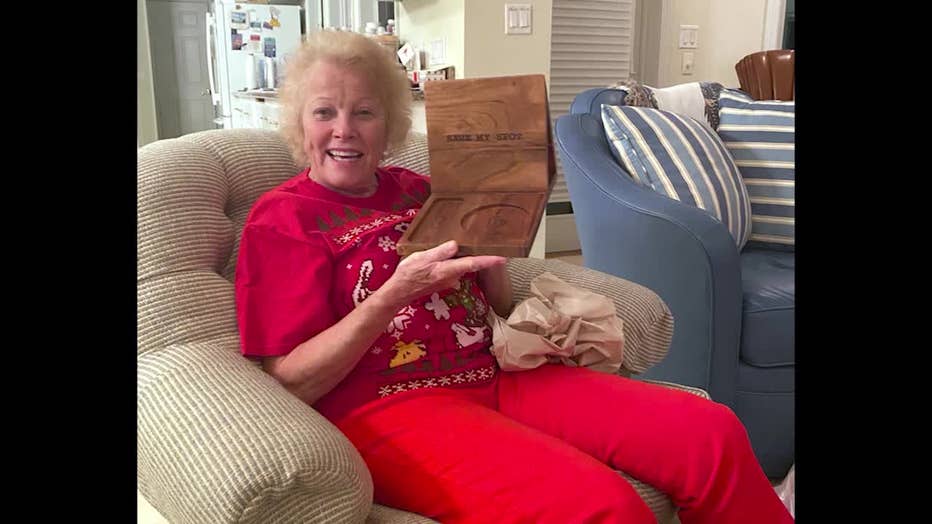
Carolyn Davis, 74, is one of the first Alzheimer's patients at Emory University Hospital to receive the recently FDA-approved drug Leqembi. (Carolyn Davis)
Carolyn Davis says she feels confident about the future.
"I have hope again after being told that there was nothing, get my affairs in order," she says.
How can Alzheimer's patients get Leqembi?
Access to the medication remains a big challenge.
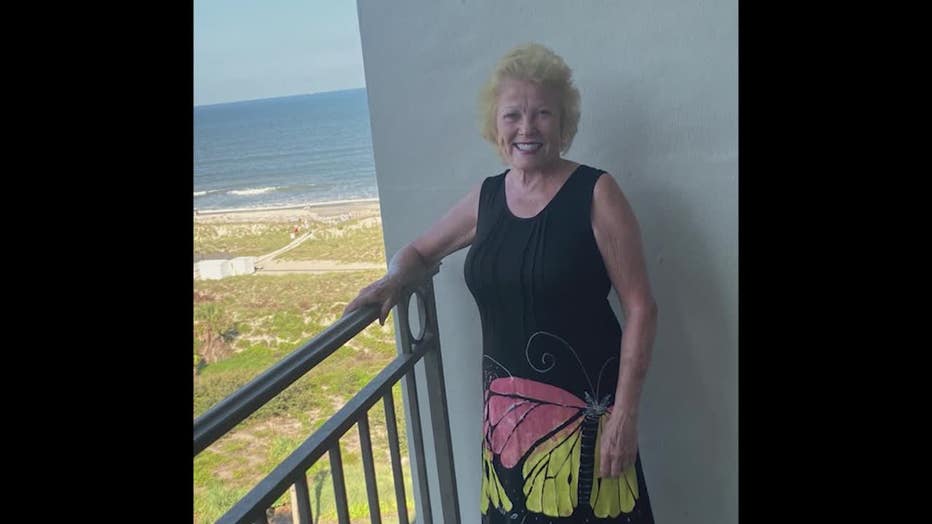
Carolyn Davis, 74, is one of the first Alzheimer's patients at Emory University Hospital to receive the recently FDA-approved drug Leqembi. (Carolyn Davis)
Leqembi infusions typically need to be given at a hospital or infusion center, and patients need to be carefully screened to make sure they are a good fit and carefully followed for adverse side effects.
If you have questions about Alzheimer's Disease or how to find a help provider in your area, call the Alzheimer's Associations 24/7Helpline at (800)-272-3900.

